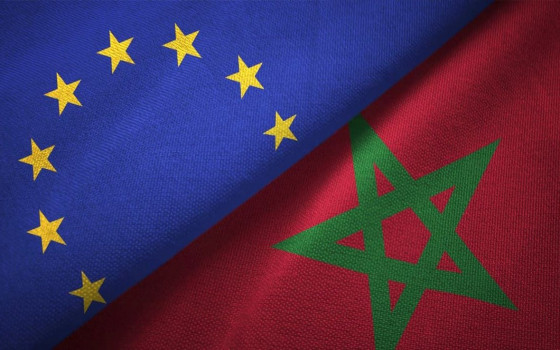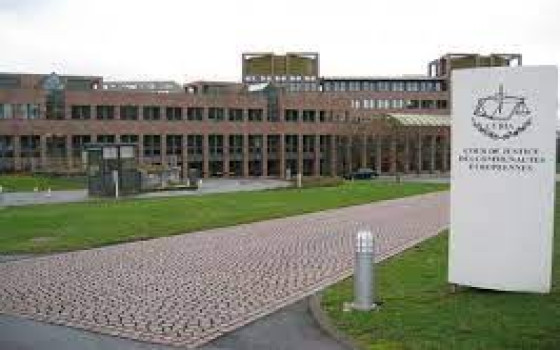EU reaction: We will maintain close relations with Morocco and continue to strengthen them in all areas of partnership in accordance with the principle of pacta sunt servanda

- Europe and Arabs
- Saturday , 5 October 2024 11:6 AM GMT
Brussels: Europe and the Arabs
The European Union's response to the European Court of Justice's decision to annul two agreements signed by the European Commission with Rabat came through a joint statement issued by Ursula von der Leyen, President of the Commission, and Josep Borrell, the Foreign Policy Coordinator. The statement distributed in Brussels read: "The European Union emphasizes the high value it attaches to its strategic partnership with Morocco, which is a long-standing, broad and deep partnership. Over the years, we have built a deep friendship and strong and multifaceted cooperation, which we intend to take to the next level in the coming weeks and months.
The European Union notes the judgments of the Court of Justice of the European Union C-778/21 P, C-798/21 P, C-779/21 P and C-799/21 on appeals against the General Court's judgment of 29 September 2021, as well as the response to the request for a preliminary ruling in case C-399/22 on the labeling of fruits and vegetables from the territory of Western Sahara. The European Commission is currently analyzing the judgments in detail. In this context, we note The European Court of Justice maintains the validity of the agreement on agricultural products for an additional 12 months.
In close cooperation with Morocco, the European Union intends to maintain and further strengthen close relations with Morocco in all areas of the partnership between Morocco and the European Union, in accordance with the principle of pacta sunt servanda.
According to the France 24 website in Paris, due to "the violation of the right of the people of Western Sahara to self-determination and the absence of their consent", the European Court of Justice ruled on Friday that trade agreements concluded by the European Commission with Morocco are illegal. This decision issued on Friday is a final ruling after several appeals filed by the Commission, the executive arm of the European Union.
The Western Sahara region is the longest territorial dispute in Africa since Spain, the former colonial power, left the region in 1975 and Morocco annexed it.
The European Union concluded agreements on fisheries and agriculture with Morocco in 2019 that also included products from Western Sahara.
The court said "the consent of the people of Western Sahara to their implementation... is a condition for the validity of the decisions by which the (European Union) Council approved these agreements on behalf of the European Union."
The consultation process did not include "the people of Western Sahara, but rather the population currently present in this region, ignoring the extent to which they belong to the people of Western Sahara," she added.
The court also ruled that watermelons and tomatoes produced in Western Sahara must be labeled with the country of origin. It added that "the labels must indicate Western Sahara alone as the country of origin of these goods, excluding any reference to Morocco, in order to avoid misleading consumers."
'Blatant political bias'
Hours after the European Court of Justice's ruling, the Moroccan Foreign Ministry said the ruling was "blatantly politically biased."
The ministry added in a statement that "the content of the ruling is marred by many clear legal flaws and suspicious factual errors."
The statement said that Morocco "demands that the Council, the European Commission and the EU member states take the necessary measures to respect their international obligations and preserve the gains of the partnership."
The statement added that "Morocco reiterates its firm position regarding non-compliance with any agreement or legal document that does not respect its territorial and national unity."














No Comments Found